2000 Toyota Tundra Tires, Repair & Service
Get Started
Complete Auto Care for Your 2000 Toyota Tundra
-
TIRES FOR YOUR 2000 Toyota Tundra View Tire Info GET TIRE PRICING
-
REPAIR FOR YOUR 2000 Toyota Tundra View Repair Info SCHEDULE REPAIR
-
MAINTENANCE FOR YOUR 2000 Toyota Tundra View Maintenance Info SCHEDULE MAINTENANCE
-
OFFERS FOR YOUR 2000 Toyota Tundra Limited Time Tire Offers VIEW ALL COUPONS
2000 Toyota Tundra Tires
Recommended Tires | Tire Information
2000 Toyota Tundra Tires Sizes, Speed Ratings, and Inflation
Not sure about your 2000 Toyota Tundra tire size? Use the following chart to find information on tire size, speed rating, and inflation.
| Trim Level | Speed Rating | Inflation in PSI F/R | Tire Size |
|---|---|---|---|
| 2000 Toyota Tundra SR5* | S | 26 PSI/35 PSI | P245/70R16 |
| 2000 Toyota Tundra SR5* | S | 26 PSI/29 PSI | P265/70R16 |
| 2000 Toyota Tundra Limited | S | 26 PSI/29 PSI | P265/70R16 |
| 2000 Toyota Tundra Base | S | 26 PSI/35 PSI | P245/70R16 |
|
2000 Toyota Tundra SR5* Speed Rating: S Inflation F/R: 26 PSI/35 PSI |
|
2000 Toyota Tundra SR5* Speed Rating: S Inflation F/R: 26 PSI/29 PSI |
|
2000 Toyota Tundra Limited Speed Rating: S Inflation F/R: 26 PSI/29 PSI |
|
2000 Toyota Tundra Base Speed Rating: S Inflation F/R: 26 PSI/35 PSI |
* Note: these models have different tire sizes depending on vehicle options.
Recommended Tires for Your 2000 Toyota Tundra
What tires are best for a 2000 Toyota Tundra? Check out the following tire brands and types.
 Blizzak DM-V2
Blizzak DM-V2
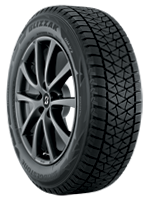
- No warranty
- Winter
- Winter
 ALENZA AS ULTRA
ALENZA AS ULTRA
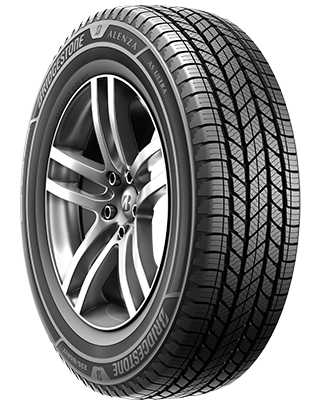
- No warranty
- All-Season
- Light Truck Tires
 Dueler A/T Revo 3
Dueler A/T Revo 3
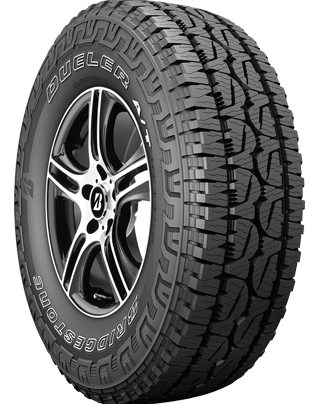
- Platinum Pact Limited Warranty
- All-Season
- Light Truck Tires
 Destination A/T2
Destination A/T2
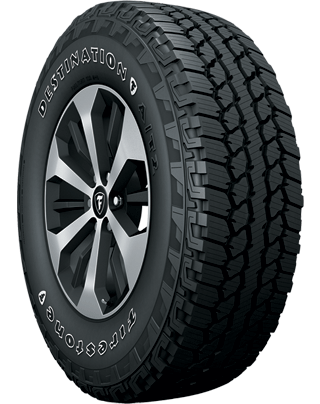
- Gold Pledge Limited Warranty
- All-Season
- Light Truck Tires
 Destination LE3
Destination LE3
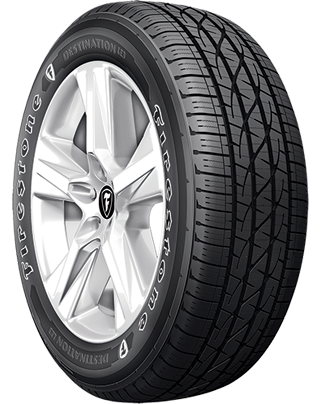
- No warranty
- All-Season
- Light Truck Tires
 Winterforce 2 UV
Winterforce 2 UV
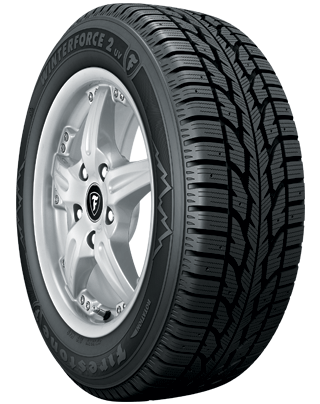
- No warranty
- Winter
- Winter
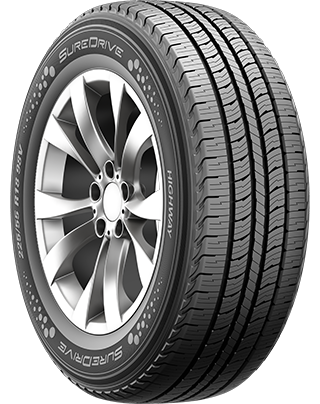
- No warranty
- All-Season
- Light Truck Tires
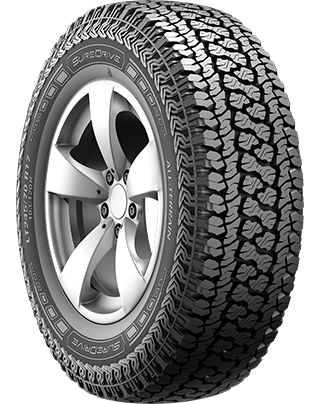
- No warranty
- All-Season
- Light Truck Tires
 OPEN COUNTRY A/T III
OPEN COUNTRY A/T III
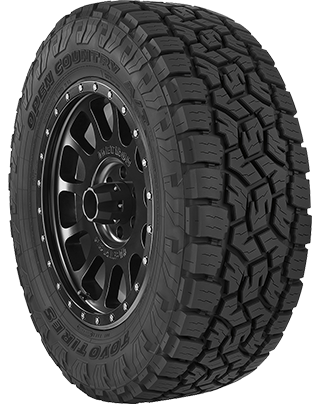
- No warranty
- All-Season
- Light Truck Tires
 OPEN COUNTRY HTII
OPEN COUNTRY HTII
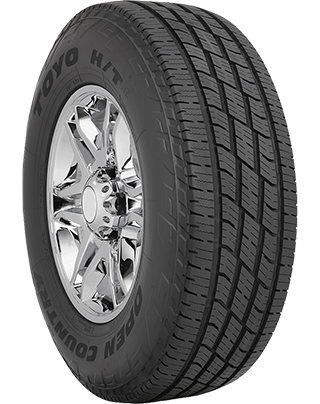
- No warranty
- All-Season
- Light Truck Tires
Choosing 2000 Toyota Tundra Tires
Apart from finding the right tire size, you also want to think about a couple of other things when getting new Toyota Tundra tires like how and where you drive, and how much you want to spend. When evaluating your driving conditions, think about where you live (countryside vs. city vs. mountains) and the kind of unexpected weather you're likely to experience. It's not uncommon for drivers in states that experience all four seasons to buy more than one set of tires. one for winter and one for summer. Other drivers prefer the convenience of all-season tires. They make one trip to the tire shop and they're pretty much ready for rain, light snow, or sun!
Driving style is next on the list to think about when buying tires. If you're an avid off-roader who yearns to pioneer new paths, you have very different tire needs than a highway commuter who doesn't hit the hills very often. Browse Toyota Tundra tires online or come to your nearby Firestone Complete Auto Care for help selecting the tire that's right for you.
2000 Toyota Tundra Tire Installation & Rotation
Firestone Complete Auto Care has been a leading tire provider for more than a century. We're your tire shop and a complete service center for tire installation, maintenance, repair, rotation, and alignment! Shop 2000 Toyota Tundra tires online and schedule an installation appointment.
Questions About 2000 Toyota Tundra Tires
-
Is Toyota tire inflation important? A small decrease in tire pressure can have a big impact on your driving. Maintaining proper tire pressure can help improve braking time, increase fuel economy, and boost tire lifespan.
-
What do the numbers on my Toyota Tundra tires mean? Your tire sidewall numbers tell you the recommended load carrying capacity, speed rating, treadwear, traction, and tire size. Talk to a tire technician to learn how to read Toyota tire numbers.
-
Is there an easy way to check Toyota tire tread depth? Stay on top of your tire tread depth to help avoid a dangerous drive. You can check tread depth with a penny. Hold the penny so that Abraham Lincoln is facing you, then place your penny into a tread groove upside down. If you can see the top of Abe’s head, your tread is shallow and it might be time for new Toyota Tundra tires. Grab a penny. Hold the so that Abe Lincon's head is facing you and his hair is pointing toward the ground. Then, place the penny into a tread groove. If you can see the top of Abe’s head, your tread is shallow and it might be time for new Toyota Tundra tires.
2000 Toyota Tundra Repair
Want more details? Choose a service below to read more about Toyota Tundra repairs at Firestone Complete Auto Care.
About 2000 Toyota Tundra Repairs
Car repairs: for many drivers, that phrase is a dreadful one. We’re here to change that, though. At Firestone Complete Auto Care, we want to make car repair painless and hassle-free. When it’s time for 2000 Toyota Tundra repair services, head to your nearest Firestone location and our skilled repair technicians will get your Tundra back on the road. Before we begin any repair work, we’ll diagnose any issues and answer your questions about potential repair options. If a repair isn't necessary, we won't recommend it.
What Will Toyota Tundra Repairs Cost?
The cost to repair your 2000 Toyota Tundra depends on what kind of repair you need, costs of replacement parts or repair supplies, how much labor the repair will take, and the state you live in. But regardless of where you’re located, check out our website for repair coupons and offers that could save you some cash.
A few different aspects can influence repair costs for your 2000 Toyota Tundra, like
Questions About 2000 Toyota Tundra Auto Repairs
-
Can scheduled maintenance help me avoid repairs? One of the best ways to prevent 2000 Toyota Tundra repairs is by staying on top of your Toyota maintenance schedule. This schedule is written by the people who made your vehicle and they know best how to keep it running smoothly.
-
What's wrong if something feels 'off' in my Toyota? You know your vehicle. You also know when something feels 'off' with your vehicle. Pay attention when things don't run like they used to and stop by for a Courtesy Check when you notice an unusual sign, smell, or sensation. We might be able to help you prevent Toyota Tundra repairs!
-
Why do you recommend certain repairs for my Toyota? Trust is more than just a saying on the wall. It’s a window underneath it. That’s why we won’t recommend services or repairs for your 2000 Toyota Tundra unless we think they’re vital to your safety on the road.
Get Your 2000 Toyota Tundra Brakes Fixed
Your Toyota Tundra may be powered by a strong engine. But if you can’t stop it, it’s as good as scrap metal. If you’re experiencing squeaky brakes or a loss of braking power, don’t wait! Safe driving and responsive brakes go hand in hand. Plus, ignoring your brake problems can result in more damage and higher brake repair bills. Go to your local Firestone Complete Auto Care for 2000 Toyota Tundra brake repairs. We offer a variety of brake services like pad/shoe replacement, rotor/drum resurfacing, brake fluid exchange, and brake caliper and wheel cylinder installation.
Toyota Tundra Brakes Questions
-
Why is my Tundra shaking as I brake? If your Tundra shakes when you brake, you could be dealing with warped rotors, faulty brake calipers, worn brake pads or rotors, or loose or worn suspension parts. Schedule a free brake inspection at Firestone Complete Auto Care for help diagnosing your brake issue.
-
What is the average lifespan of Tundra brake pads? You can usually get around 30,000 to 40,000 miles out of your brake pads, but how and where you drive your Tundra can affect this. Hauling large loads or riding your brakes can shorten their lifespan, while smoothly braking and mostly sticking to highways can help your brake pads last longer.
-
Is it bad if my Tundra is leaking brake fluid when off? Your Tundra brake system is a closed hydraulic system, so a brake fluid leak likely means you have an issue in your brake system. Over time, brake components can wear out or get damaged, causing a brake fluid leak.
2000 Toyota Tundra Drivetrain Repairs
Drivetrains for front, rear, and all-wheel-drive and 4WD vehicles are quite different, so you don't want to go to just anyone for drivetrain repair. You want to go to Firestone Complete Auto Care. We can fix many 2000 Toyota Tundra drivetrain components Your Toyota Tundra may need driveshaft attention if you feel vibration as your vehicle accelerates, clunks when shifting, heavy vibrations in your floorboards, or resistance when turning.
2000 Toyota Tundra Drivetrain Questions
-
What are the symptoms of a damaged Toyota drivetrain system? Hear noises toward the back of your Toyota Tundra? See fluid leaking? Having issues turning? These could all be signs of drivetrain damage you don't want to ignore. Take action quickly to catch repairs or replacements before something more severe happens.
-
What triggers the malfunction indicator light (MIL) in a Tundra? Engine problems, transmission problems, faulty sensors, electrical issues, misfire issues, and connector problems could all cause your Tundra’s malfunction warning light, or better known as the check engine light, to illuminate.
-
How worried should I be about a drivetrain malfunction in my Tundra? A drivetrain malfunction in your Tundra should never be taken lightly. Driving with a malfunctioning drivetrain can put you in danger and lead to further vehicle damage, so it's essential to have a qualified mechanic assess and repair the problem as soon as possible.
Wheel Alignment for 2000 Toyota Tundra
An alignment involves making adjustments to your Toyota Tundra's suspension system, which connects the wheels with the rest of the vehicle. When your car has an alignment service, the individual angles of your tires are adjusted so that they come into contact with the road in just the right way — the way Toyota intended them to. When you bring in your 2000 Toyota Tundra, we’ll perform an alignment check first. Then, we’ll adjust the angles as needed until they match recommended measurements from Toyota.
Toyota Tundra Alignment Questions
-
Are there road conditions that can hurt my Toyota Tundra alignment? Potholes and uneven roads can knock your car out of alignment, so stay aware of the road ahead and adjust your speed (or avoid these obstacles whenever it’s safely possible).
-
When should you get a wheel alignment for your Tundra? Typically, your alignment should be checked every 6,000 miles or 6 months, whichever comes first. Double-check your Tundra owner’s manual for Toyota's exact recommended schedule.
-
Do you need to get your Tundra wheels aligned? It’s not mandatory to get an alignment after installing new tires on your Tundra, but it can be a smart decision! Proper alignment from the jump can help improve handling, fuel efficiency, and tire wear.
2000 Toyota Tundra Engine Repair
If your 2000 Tundra engine needs repairs, our expert techs will let you know what needs to be done and why before they get started. We never do any work without your sign-off. If a repair can wait, we'll let you know. But if immediate repairs are necessary for your safety, we’ll make sure that's clear, too. We want to give you all the details you need to make an informed decision about your engine repairs. Choose Firestone Complete Auto Care for Toyota Tundra engine repairs and you can feel good knowing that we only use Toyota-compliant replacement parts such as the timing chain or belt, motor oil seal, sensors, or another part.
Questions About 2000 Toyota Tundra Engines
-
Why does the check engine light in my Tundra turn on when I start my car? Generally, your check engine light turning on upon ignition is not a bad thing. It’s just your Tundra firing up its circuits. The light should turn off in a bit, but come see us if it doesn't.
-
Why does my Toyota engine sound different? Strange under-the-hood noises can point to problems within your Toyota Tundra engine. Tapping or knocking could mean you need an oil change. Whistling sounds could mean you have an intake leak or misaligned belt. Squealing may be caused by a loose fan belt, and grinding could be a sign that something is wrong with your brakes — not the engine.
-
What could damage my Toyota Tundra engine? Certain driving habits can damage your engine and should be avoided. These habits include 'running on fumes,' revving the engine while still in Park, or pushing 'the pedal to the metal' before the engine has warmed up. Help sustain your engine’s performance and efficiency by staying miles away from these bad driving practices.
Tire Repair for Your 2000 Toyota Tundra
Firestone Complete Auto Care is here for you when your 2000 Toyota Tundra needs flat tire repair or inspection. In some cases, a tire doesn’t have to be replaced – it can be plugged and patched with a simple repair. Depending on the damage, though, a repair might not be the right move. Our technicians can determine which option is best for your situation. We’ll begin by taking a look at where the damage is, the type and extent of the tire damage, and how all of your tires are wearing.
If we determine that your 2000 Toyota Tundra tire can be safely repaired, we’ll get to work on the steps to fix it: (1) Take the tire off the wheel for easy inspection, (2) use a filler to close up the puncture (this is to keep moisture from getting in), and (3) re-seal the inside lining of your tire so that air won’t escape.
Your Questions About Toyota Tundra Tire Repair, Answered
-
What happens if I drive my Toyota on a flat tire? Driving on a flat tire is not a good idea. Your Tundra engine will keep running with a flat tire, but you could damage your wheel by continuing to drive on a flat.
-
Is temporary sealant bad for my Toyota's tires? Fast fixes are a mixed blessing. They’ll help you get your Toyota Tundra to Firestone Complete Auto Care, but don’t count on them to keep you on the road for very long. Using a temporary sealant may also void a Bridgestone or Firestone tire warranty.
-
What is causing the tires on my Tundra to keep losing air? Tire punctures, damaged wheels, and leaking valve stems are possible reasons for your Tundra tires continuously losing air.
Maintenance for Your 2000 Toyota Tundra
When it comes to your Toyota Tundra, how you treat your car makes all the difference in its performance. With proactive maintenance, your Tundra could be on the road well past the 200,000 mile mark.
Guide to 2000 Toyota Tundra Scheduled Maintenance
It can be overwhelming, but fortunately, there’s a resource that takes the guesswork out of routine Tundra maintenance. Just follow your 2000 Toyota Tundra maintenance schedule! Toyota knows your vehicle inside and out (they made it, after all!), so they’ve designed this schedule with your car’s unique needs in mind. Driving conditions, climate variations, and other variables can affect which scheduled maintenance services you’ll need; in most cases, though, recommended maintenance will consist of services like tire rotations, vital fluid checks/exchanges, filter changes, brake pad replacement, and oil changes. Keeping up with routine service appointments is a great way to keep your Tundra running for longer, decrease your risk of dangerous malfunctions on the road, and help you avoid expensive repairs caused by 2000 Toyota Tundra problems later.
Overview of Essential Toyota Tundra Maintenance Needs
Head to your nearest Firestone Complete Auto Care in your 2000 Toyota Tundra for factory-recommended routine maintenance and a skilled technician will start the appointment with a Courtesy Check. This Courtesy Check can establish a baseline of what may need to be addressed during your service appointment. Every Courtesy Check will include a visual inspection of your Tundra. We’ll check your head and tail lights, fluid levels, filters, tires (and their alignment!), and windshield wiper blades. We’ll also perform a free battery check to determine your battery’s charge level.
Firestone Complete Auto Care is your one-stop shop for 2000 Toyota Tundra maintenance and repairs. We can help you keep your vehicle (and your life!) running smoothly. Many of our locations have weekend and evening hours for your convenience.
Questions About 2000 Toyota Tundra Maintenance
-
When should I have Toyota Tundra alignment checked? Watch out for pothole damage. If your 2000 Tundra is pulling to one side or the other, your tires or suspension system could be calling out for help.
-
When does my Toyota Tundra need high mileage oil? If your Toyota Tundra has ticked past 75,000 miles, consider switching to high mileage oil at your next oil change to give your engine what it needs to go another 75,000 (or more!). High mileage oil: make it a high priority!
-
Can I ignore dashboard lights on my Toyota? Because there might be a problem under the hood. Those warning lights are there for a reason! As soon as you notice that one’s illuminated, take your Toyota Tundra to Firestone Complete Auto Care so you can address any small problems long before they worsen.
2000 Toyota Tundra Battery Replacement & Size
Not sure what battery to get for your Toyota Tundra?
| Battery | Engine | Warranty | Cold Cranking Amps | |
|---|---|---|---|---|
| 24F-3 | V8/4.7L | Replacement 24 months | Performance months | 650 |
| 35-2 | V8/4.7L | Replacement 36 months | Performance months | 640 |
| 24F-RP | V8/4.7L | Replacement 48 months | Performance months | 750 |
| 35-1 | V6/3.4L | Replacement 24 months | Performance months | 500 |
| 35-2 | V6/3.4L | Replacement 36 months | Performance months | 640 |
| 24F-RP | V6/3.4L | Replacement 48 months | Performance months | 750 |
2000 Toyota Tundra Car Batteries
The average car battery lasts three to five years. Don’t get stranded by your Tundra’s car battery. Replace it regularly instead! Watch for signs that your current battery is getting too old or too weak. A lagging starter, an illuminated check engine light or battery signal, bloated battery case, corroded battery posts, or faded headlights may all indicate that your battery is waving goodbye.
Or, you can get a complimentary battery check at your nearest Firestone Complete Auto Care. Visit us for a complimentary battery check and, if necessary, a battery replacement to help keep your 2000 Toyota Tundra running! Automotive batteries are just one of our many areas of expertise. Our expert technicians understand Toyota service recommendations for Tundra battery cold cranking amps and reserve capacity. Get help figuring out the battery size that fits your car perfectly, and schedule a fast car battery replacement at your earliest convenience.
Top Toyota TundraCar Battery Questions
-
Why won't my Toyota Tundra battery stay charged? A battery is in its final hour when it will no longer hold a charge. The battery may be too old. Or, you may have been leaving your car doors ajar and the cabin light at night. Stop by for a complimentary battery check at your favorite Firestone Complete Auto Care and get a handle on your car battery’s health.
-
What is the average lifespan of a car battery? A car battery normally lasts three to five years, but this number can vary based on battery type, your driving habits, and battery maintenance.
-
Why is there white, flaky stuff around my Tundra’s battery post? If you notice white, crusty stuff around the battery terminals of your Tundra, it's likely corrosion. A chemical reaction between battery acid and the air can create a white, powdery substance that builds up over time on the terminals. This buildup can interfere with the electrical connection between the battery and your Tundra’s electrical system, potentially leading to poor performance, difficulty starting, and other issues.
2000 Toyota Tundra Oil Change Service
Your 2000 Tundra’s oil should be changed according to Toyota’s recommended oil change intervals. Your Tundra may need an oil change right away if your check engine/oil change light is on, you hear engine knocking, sense an oil smell in the cabin, or notice an unusual amount of exhaust. You may also need an oil change more frequently than Toyota recommends if you haul heavy loads, drive in dusty areas, enjoy off-roading, or go at low speeds on long distance trips.
Your local Firestone Complete Auto Care has the right 2000 Toyota Tundra motor oil: either synthetic or conventional. Consult Toyota's recommendations to select the right 2000 Tundra oil and talk with a teammate to learn more about our oil options: Quaker State® Advanced Durability™ conventional oil, Pennzoil® High Mileage Vehicle® motor oil, Pennzoil Platinum® Full Synthetic motor oil with PurePlus™ Technology, and Shell Rotella® heavy-duty engine oil. During an oil change, one of our techs will change your Tundra’s oil, replace and recycle the old oil and filter, inspect all of your other filters, refill vital car fluids, and perform a free inspection on the rest of your vehicle. Get professional engine care by making an oil change appointment for your Tundra today.
2000 Toyota Tundra Oil Change Questions
-
What does it mean if my Toyota Tundra oil light comes on? Your Toyota Tundra oil change reminder light may come on if you're overdue for an oil change. The oil pressure light will typically come on if the oil level in the engine is too low, the oil pump is failing, you have a clogged oil filter, or there's a faulty oil pressure sensor.
-
Can I change my Toyota oil on my own? Changing your own oil isn't as convenient as you might think. It requires special tools and old oil must be disposed of properly. Having your oil professionally changed reduces the chances of something going wrong with the oil change, but also with your vehicle down the road.
-
Why is my Toyota Tundra spewing blue or gray exhaust smoke? There could be an oil leak and your engine is burning oil. Time to have a qualified technician check things out. The leak could be caused by several issues like leaking valve seals, damaged piston rings, or worn cylinder walls.
Engine Tune-Up Service for Your 2000 Toyota Tundra
Periodic tune-ups can bring more power back to your Tundra’s engine. Your local Firestone Complete Auto Care offers a range of engine tune-up services for your 2000 Toyota Tundra. The standard Firestone Tune-Up is one service option. This includes the installation of new spark plugs and a visual inspection of your engine’s components, plus a lifetime warranty on parts*. The second service focuses on your Tundra's filters, specifically replacing the air filter and fuel filter. Our third service is a thorough cleaning of the fuel system. During this type of tune-up, we use a three-step process to get rid of harmful varnish, dirt, and carbon deposit buildup in your Tundra’s fuel injectors, throttle body, and throttle plate. The result? Restored fuel system performance. Consider this when choosing a tune-up service for your Tundra: your vehicle’s maintenance record and mileage can determine which service is best. Talk to a technician about your driving style, mileage, and service history to learn more about your vehicle's specific needs.
*Check with a teammate at Firestone Complete Auto Care for complete terms and conditions regarding warranties.
Common Engine Tune-Up Q&A for 2000 Toyota Tundra
-
What happens if my Toyota Tundra spark plugs fail? Replace spark plugs on time or about every 30,000 miles or so. Without the spark of electricity created by spark plugs, your engine doesn’t have the combustion it needs to start — which could leave you stranded on the road. Always replace your spark plugs on time based on Toyota’s recommendations.
-
What should I do if I see leaks under my Tundra? Puddles could indicate an oil leak, coolant leak, or brake fluid leak– all of which can critically hurt your engine. Have your engine inspected as soon as you spot a pool of liquid in your usual parking spot.
-
How frequently do the fuel injectors in my Toyota Tundra need to be cleaned? Factors like fuel type and driving conditions can affect how frequently you need to clean your Tundra fuel injectors. Some manufacturers recommend a fuel system cleaning as part of routine maintenance, or as needed if your vehicle is showing signs of poor fuel system performance.
Suspension Service & Repair for 2000 Toyota Tundra
When you first drove your 2000 Toyota Tundra, the ride was probably so smooth that you didn’t even think about it! Now, however, things are starting to feel a little rough. Maybe your Tundra jolts, leans to one side, or makes a weird sound when you drive over a speed bump or turn. The first sign of trouble is the best time to bring your 2000 Toyota Tundra in for steering and suspension repairs. We’ll get to the source of your car problems and, if steering and suspension service is needed, we’ll go over the services you need and how much they will cost before we do any work.
2000 Toyota Tundra Steering & Suspension Questions
-
Why is my Toyota Tundra bouncing excessively? Damaged struts or shocks can't dampen road bumps properly, causing your vehicle to feel like a trampoline after each dip or bump.
-
Why does my Tundra tilt forward when I hit the brakes? When you brake, the forward momentum combined with your vehicle's weight sends a lot of force to the vehicle's front end. A bad suspension can cause all that weight and force to push the front end downward.
-
What role do tire pressure and tread depth play in my Toyota's suspension? Maintaining your tires can help reduce strain on the suspension, nd also let you know when it's time to replace your tires. A faltering steering and suspension system could lead to uneven tire wear.
2000 Toyota Tundra A/C Service Near You
Our trained technicians will do what they can to solve your 2000 Toyota Tundra A/C problems. During this initial A/C performance check, we’ll look at the state of your 2000 Toyota Tundra’s A/C system to determine whether repair work is needed. This check includes a visual inspection, performance test, and pressure and leak test.
While your 2000 Toyota Tundra’s air conditioner is being serviced, we’ll also do an A/C evacuation and recharge. To do this, one of our technicians will remove the refrigerant in your A/C system (if there is even any left to remove). Then, they’ll use Toyota’s specifications to evacuate the system. The A/C system is recharged with new refrigerant.
Frequently Asked Questions for 2000 Toyota Tundra A/C Systems
-
Why is my Tundra A/C blowing hot air? If your car’s air conditioning isn’t blowing cold air at all (or it tries, then turns warm), you could have a clogged expansion valve, a faulty compressor clutch, a leak, or a malfunctioning fuse in the system.
-
What can cause an A/C system leak? To put it simply, age and moisture are some of the main causes of leaks in your A/C. Over time, rubber gaskets and seals can wear out, which pushes much-needed refrigerant out of your Tundra’s A/C system — and lets outside moisture get in, which can take a toll on internal A/C components.
-
Why won’t my Tundra’s A/C cool the vehicle when the car is stopped? There could be issues with one or more components in the air conditioning or electrical system. Your Tundra may have a faulty cooling fan or low refrigerant.
2000 Toyota Tundra Transmission Service & Repairs
Your transmission carries power from the engine to the wheels so that you can drive at the speed you desire. Because of the transmission’s responsibility to translate the right dose of power into the right amount of speed, even the smallest transmission problems should be addressed right away. 2000 Toyota Tundra transmission issues could include shifting delays, grinding or jumping during acceleration, the car shaking on the road, or whistling noises or a burning smell coming from beneath the hood. Let Toyota Tundra transmission problems linger and your could suffer a loss in fuel efficiency or discover that your Tundra’s not even driveable. Our technicians know how to service your 2000 Tundra up to Toyota-recommended standards. Schedule an appointment at your local Firestone Complete Auto Care at the first sign of transmission problems to help keep your Toyota running for miles and miles.
Questions About 2000 Toyota Tundra’s Transmission
-
How often does my Tundra transmission fluid need to be checked? Maintaining your Toyota Tundra transmission fluid is one of the best ways to maintain your transmission's health. A general rule of thumb is to have your transmission fluid checked and changed about every 30,000 to 60,000 miles, but that timeline can change if you're hard on your Toyota. Leaks or low transmission fluid are easy to spot and affordable to repair.
-
Can Toyota Tundra transmission fluid leak? Yes. Toyota Tundra transmission fluid can leak as time passes, which may lead to transmission problems. Transmission fluid leaks are often caused by worn or damaged transmission components, such as the transmission pan, cooler lines, seals, or housing. An overfilled transmission may also be behind your transmission fluid leak.
-
Can I still drive my Toyota Tundra if it has a transmission fluid leak? You should avoid driving with a transmission fluid leak. Your transmission system relies on transmission fluid to operate properly, and a leak may decrease performance, cause your Tundra to overheat, or even lead to transmission failure.
Vehicle Inspection for 2000 Toyota Tundra
When you bring your vehicle to Firestone Complete Auto Care for any service, we’ll automatically do a multi-point Courtesy Check. The technician will begin by testing your Toyota Tundra's battery to determine how much charge remains. After we’ve inspected your Toyota Tundra’s battery, we’ll visually inspect your windshield wiper blades, lights, filters, alignment, tires, hoses, belts and fluid levels.
Every service performed at your nearest Firestone Complete Auto Care will include a Courtesy Check, but we can also dig deeper and perform a Complete Vehicle Inspection on your 2000 Toyota Tundra if you prefer. In addition to a visual check of everything that's included in a Courtesy Check, a Complete Vehicle Inspection also includes a hands-on examination of your steering and suspension system, brakes, and exhaust components. This inspection is aimed at informing you of any major problems that could need immediate attention in order to prevent further damage.
In some cities or states, you may be able to take care of your state inspection or safety test at your local Firestone Complete Auto Care. Specific requirements for these types of inspections vary by state.
2000 Toyota Tundra Vehicle Inspection Q and A
-
How do I know if my Toyota Tundra needs a check-up? You drive your car, day in and day out, so you know it best. If you notice unusual engine noises or you can’t shake the feeling that something is 'off,' start with a Courtesy Check to stay ahead of potential issues.
-
Can you fix my 2000 Toyota Tundra so it will pass a state inspection test? Did your vehicle fail a recent state inspection test? We can help. Come in for a checkup and we’ll diagnose the issue.
-
What's the ideal timing for a full vehicle inspection on my Toyota Tundra? It’s generally a good idea to get a complete vehicle inspection for your Toyota Tundra before a road trip and/or when something strange occurs and you are unable to find the cause. Signs something is up include dashboard lights illuminating, odd noises coming from the engine, and your steering feeling loose or tight.
2000 Toyota Tundra Radiator Repair & Service
Keeping up with regular radiator maintenance in your 2000 Toyota Tundra is a huge factor in the longevity of your engine. To keep your radiator functioning, Toyota recommends replacing your antifreeze or coolant at scheduled intervals but it’s a good idea to keep your eyes open for any indication that your radiator is failing. Your radiator could be close to causing an engine breakdown if you notice leaking coolant, overheating, or an illuminated low coolant dashboard light.
If you bring your vehicle to Firestone Complete Auto Care, we start with a comprehensive inspection of your Toyota Tundra’s cooling system. We’ll do a machine-powered coolant exchange on the system, and then we’ll top off or replace the fluids that were removed (like chemicals, lubricants, and sealants). Lastly, we’ll perform a pressure check to look for leaks. From the radiator cap to the heater core, your 2000 Toyota Tundra is in good hands at Firestone Complete Auto Care.
Common Toyota Tundra Radiator Questions
-
What does an illuminated coolant temperature light mean for my Toyota? f the coolant light illuminates on your dashboard, your engine could be overheating. Pull over to a safe area and wait for the engine to cool down. Then, head to your nearest Firestone Complete Auto Care for a coolant system check.
-
Why is my Tundra overheating? One of the main reasons your Toyota Tundra engine might overheat is because you don’t have enough coolant. Other causes include a clogged radiator, a damaged cooling fan, a malfunctioning thermostat, or a faulty water pump.
-
My Tundra radiator sounds like it's rumbling or boiling! What's up? If your radiator sounds like it's boiling or rumbling, you could have air pockets in the cooling system of your Tundra. You might also have a damaged radiator cap (super easy to fix!) or a clogged radiator.